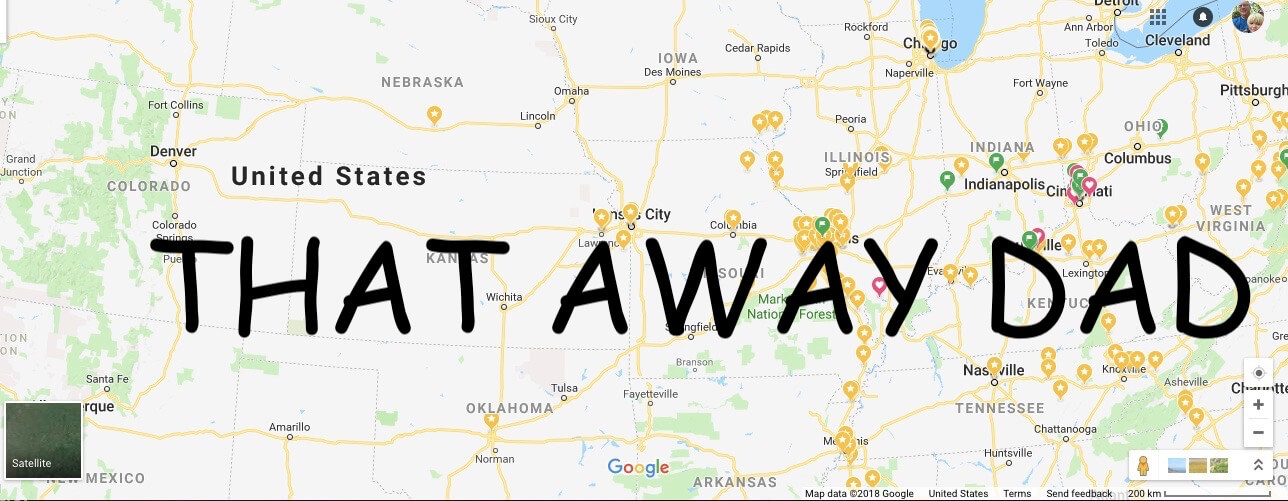Dennis Schick Trail includes historic sites and war machinery such as a World War II Sherman Tank in Jefferson Barracks Park in St. Louis County.
It is a 2.7-mile paved trail that goes through woods and does have some hills.
You can also view wildlife, the deer are very tame and signs stress not to feed them. Although we didn’t see them around when we were there.

History
On October 23, 1826, the war department declared the grounds to be named Jefferson Barracks in honor of President Thomas Jefferson who died six days prior to the founding of the post.
Jefferson Barracks was a U.S. Army post from 1826 to 1946. Its museum buildings were part of the ordnance section built in the 1850s.
Deactivated in 1946, although a military presence is maintained on a section of the post by the Missouri Air National Guard and the Missouri Army National Guard to this day.
Beginning in 1950, the Federal Government conveyed a tract of land to St. Louis County to operate as a historical park.
Starting the Hike
We parked in a small lot across from The Pavilion at Lemay, a recreation center in the park, and headed out along the Dennis Schick Trail going south towards the gated area that is still used by the military.

Through Woods
The trail goes through the woods before heading back along Gregg Road. We pass by a workout area with a child’s climbing wall. This will be the first among many.

St. Louis County has done a nice job of having outdoor workout equipment along the way with playground activities for kids.
Next, the trail goes along Gregg Road with bottomland forest across the street but still in some woods.

Stop Along the Trail
I signaled my son Andrew to walk up from the trail to see an M4A3E8 Sherman Tank.
“Andrew, your great-grandfather drove one of these tanks in World War II in Europe,” I said.
Its gun pointed at us, but you couldn’t get too close since it is surrounded by a large fence.

In the middle of the drive to the base is a military officer statue.

On the right is an air traffic control radar beacon.

Near these weapons of war are signs that explain the Civil War history of the base and how the base has changed over time.
What I found most interesting was to learn that Jefferson Barracks was the site of the first parachute jump on March 1, 1912.
Heading Back North
We now headed back along Grant Road going in and out of the trees.
Across the road was a lookout over the Mississippi River.

In front of the overlook is a gate made from four United States Army cannons. The insignia over the gate is the United States Army Ordnance Department.
The fence is made of deactivated rifle barrels from the St. Louis Arsenal and moved here in 1886 from being by the old Keeper’s House now demolished.

We stopped briefly to learn that the lookout was once the location of the Jefferson Barracks Power Depot’s Commanding Officer Residence. The gates still survive.

Corkball Fields
To the left of us what looked like mini-baseball fields. Used for the game of corkball. It is a game that uses a 1.6-ounce mini-baseball. The bat has a barrel that measures 1.5 inches. Originally played in streets and alleys of St. Louis as early as 1890.
The fields are located in the park since St. Louis servicemen introduced the game to comrades during World War II and the Korean War. It has many features of baseball but does not involve base-running.

North Entrance
Then we headed to the front of the park to the North Entrance at the intersection of Grant and Gregg Road.

Two stone guard shacks are seen here and used during World War II.

Going Back
After going by the North Entrance, we passed by a swampy pond and through some more woods before coming back to the car.

Final Thoughts
This paved hike includes woods, a river view, historic sites, and my son’s favorite, a tank.

DETAILS
Drive: Take Interstate 55 to exit 199 and go southeast on Reavis Barracks Road then make a left onto Kingston Drive then and right onto Grant Road and then another right onto Gregg Road and look for parking near The Pavilion at Lemay Recreation Center.
Hours: 8 a.m. – 30 minutes past sunset
Address: 305 Gregg Road, St. Louis, MO 63125
Next blog post I explore more of the park and walk another trail!
ANOTHER JEFFERSON BARRACKS TRAIL

Jefferson Barracks Park: Mississippi River Greenway Trail
Mississippi River views and a military memorial are along the Mississippi River Greenway Trail starting at Jefferson Barracks Pa
MORE SOUTH ST. LOUIS HIKES

Carondelet Park
Carondelet Park is surrounded by Tudor homes and includes a historic boathouse around a lake with a fountain in the middle.

Bee Tree Park
A former telephone executive mansion, Mississippi River views, and a forested lake were part of my explorations of Bee Tree County Park in south St. Louis County.

Cliff Cave Park
Near St. Louis is Cliff Cave Park with panoramic Mississippi River views and a cave to check out along its trails.


